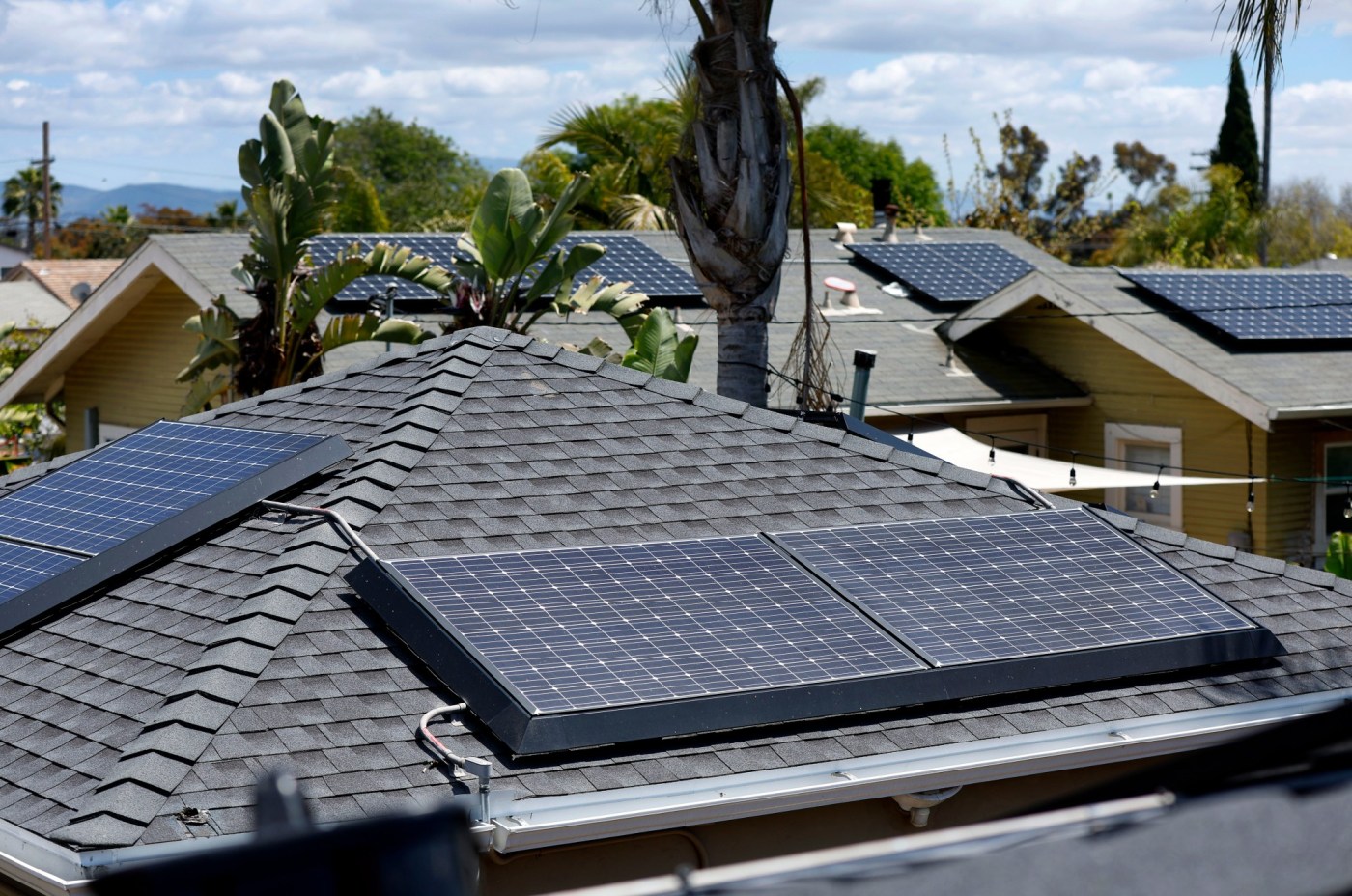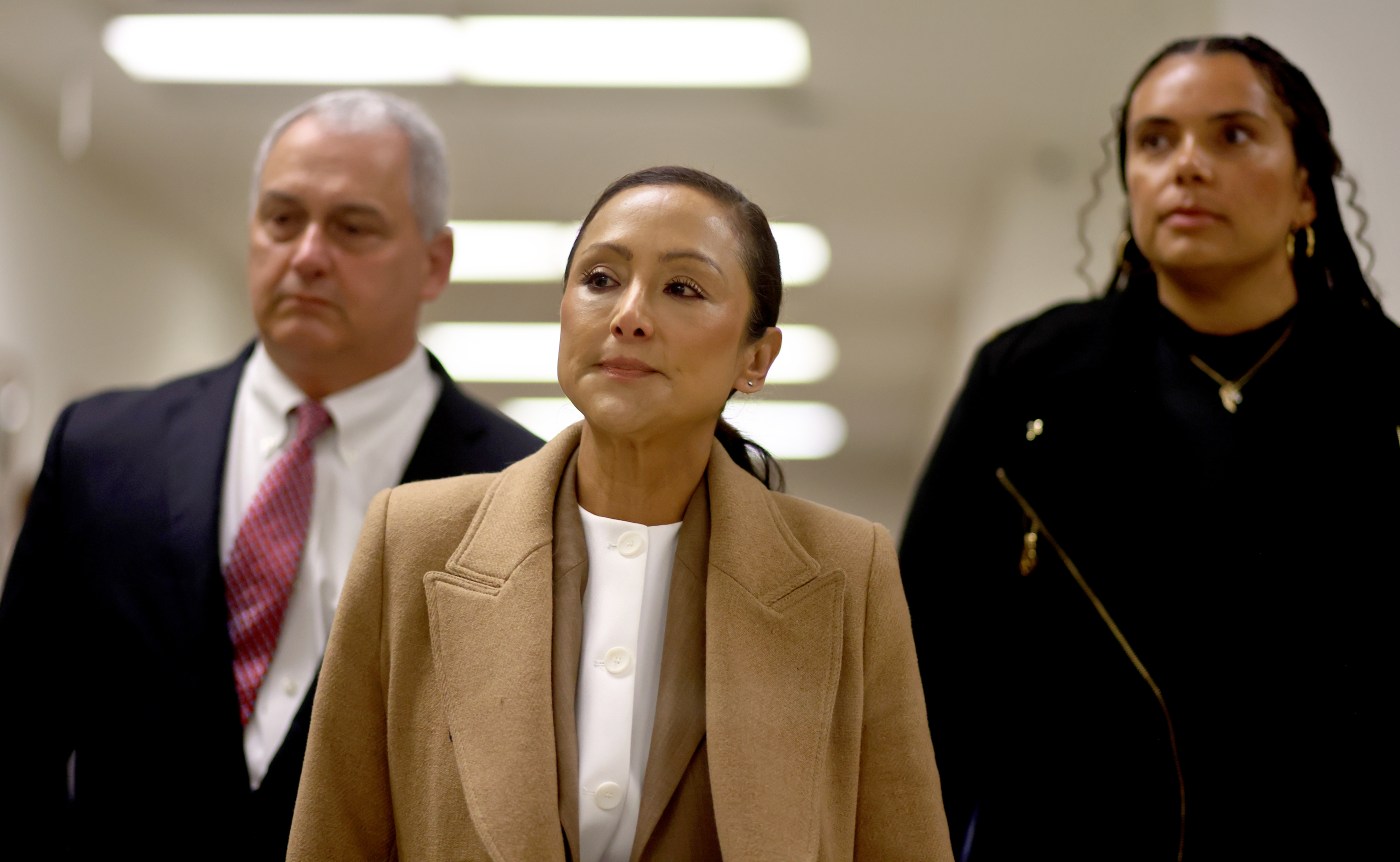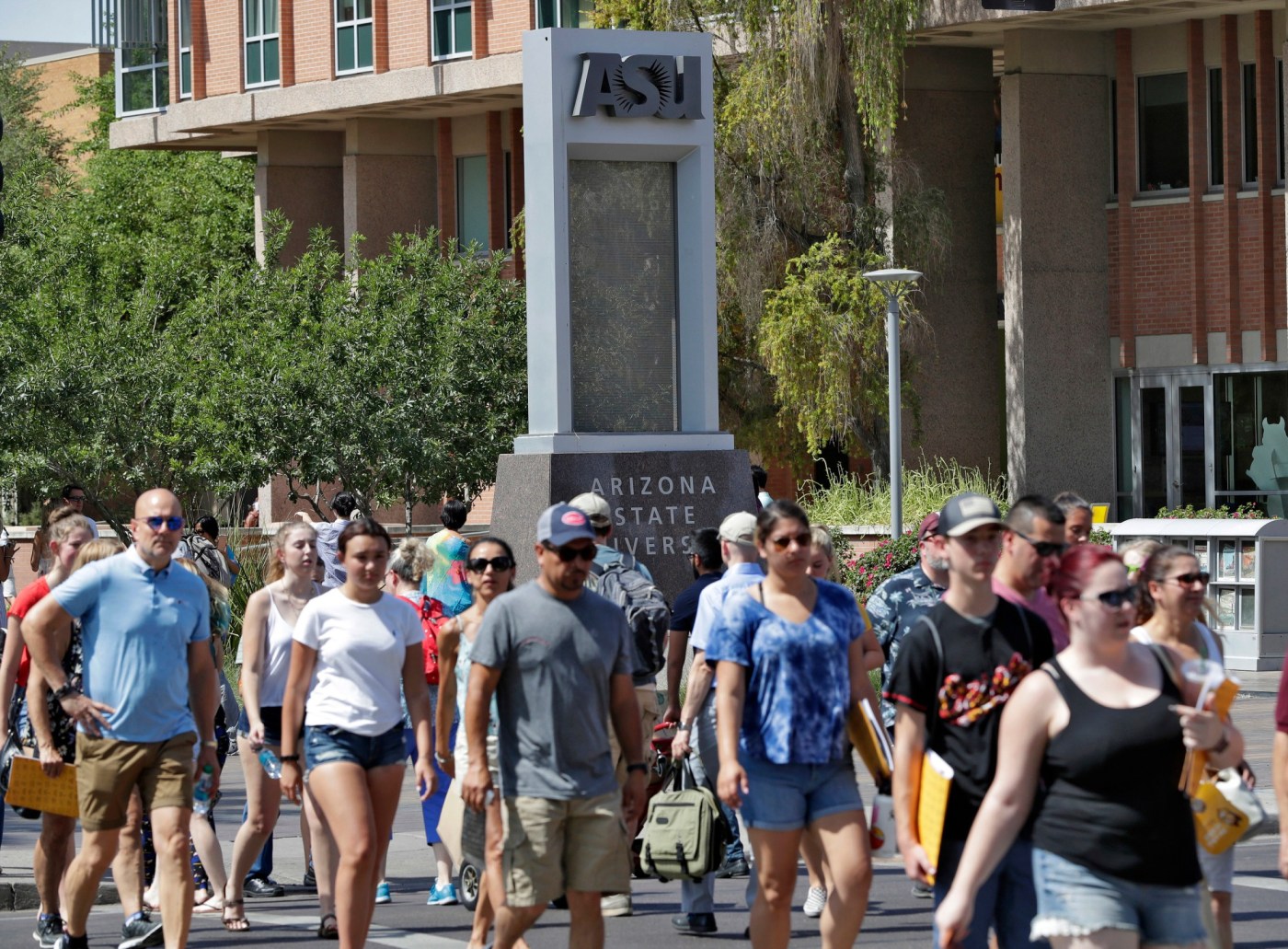The US clean energy industry is starting to buckle under the weight of persistently elevated borrowing costs, President Donald Trump’s anti-renewables policies and high tariffs.
The latest domino to fall is residential solar company Sunnova Energy International Inc., which filed for bankruptcy early Monday. Its demise follows the Chapter 11 filing last week of Solar Mosaic LLC, one of the biggest lenders in the rooftop solar market.
Related Articles
California’s energy reform bills pursue ‘affordability’
Letters: Proposed transit tax for BART isn’t supportable
Groups head to California Supreme Court, seeking to upend solar rules
Seven ways Trump’s tax and spending bill could affect Californians
Oakland airport adds zero-emission shuttle buses to fleet
And it’s not just home solar firms running into trouble: Since January, businesses have canceled or delayed more than $14 billion in clean energy and electric vehicle investments, according to a recent analysis by E2, a non-partisan group that advocates for renewables and policies to protect the environment.
Clean energy’s financing struggles arrive at a critical time for the US power industry. Utilities are rushing to meet growing demand from data centers running artificial intelligence applications. Advocates for solar, wind and batteries say those resources are faster — and cheaper — to deploy compared with traditional generation sources. But the Trump administration’s support for fossil fuels is putting renewables’ grip on the market at risk.
The outlook for the residential solar industry is especially bleak. US House Republicans have advanced a bill that would end federal tax credits for solar panels offered in former President Joe Biden’s landmark climate law. Losing those incentives – which are now being debated in the US Senate – would decimate the home solar market and are already freezing investments, analysts and executives have said.
The ripping away of tax credits in the House bill “will eliminate at least half of the market for residential solar energy,” Roth Capital Partners analyst Phil Shen wrote in a research note.
The troubles for Sunnova, one of the country’s largest home-solar firms, started before Trump came into office. The company took on a pile of corporate debt, much of it convertible to shares, that it wasn’t able to pay off after sales softened. Efforts to cut costs and streamline the business fell short. And the possible end of federal support made potential investors skittish about the company’s prospects.
The rooftop solar sector “has a long history of companies getting into financing trouble,” said Joe Osha, an analyst at Guggenheim Securities. “This whole business model is predicated on this ability to raise capital, put stuff on people’s roofs and create a stream of cash flow to satisfy third-party capital providers and leave something left for the company.”
Sunnova’s corporate borrowing came at a time when the outlook for solar was rosier. In 2023, the company also got a $3 billion partial loan guarantee from the Biden administration to support solar loans to disadvantaged homeowners. Most of that loan was canceled before Sunnova filed.
But sluggish sales and delayed payments to its dealers eroded confidence in the company. In March, Sunnova’s founder and Chief Executive Officer John Berger stepped down after the company warned that it may not be able to remain in business. Prior to the bankruptcy filing, the shares had plunged more than 90% since the start of the year, leaving it with a market cap of $27.5 million.
“They got tripped up on leverage,” said Julien Dumoulin-Smith, an analyst for Jefferies LLC. “And it’s a volatile business.”
The bankruptcy filings for Sunnova and Solar Mosaic were just the latest from rooftop companies with national scope. Last year, one of the most prominent names in solar, SunPower Corp., filed for Chapter 11.
Years before, SolarCity was bought by Tesla Inc. after amassing a large amount of debt.
Sunnova’s strategy of chasing growth over cash generation hit turbulence when interest rates rose and California, the biggest home solar market, slashed subsidies two years ago, Osha said.
More stories like this are available on bloomberg.com
©2025 Bloomberg L.P.





